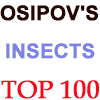DYSDAEMONIA OF THE WORLD

Dysdaemonia boreas female, copyright protected, Kirby Wolfe.
|
|
Updated October 15, 2005 Updated as per Entomo-Satsphingia 2 (1): 56 – 61 (März 2009), (australoboreas, undulensis), Ron Brechlin, July 2009 |

The Dysdaemonia genus belongs to the Arsenurini tribe of Subfamily Arsenurinae, Family Saturniidae.
The Arsenurini are a primitive tribe of very large moths (wingspans 150-200 mm) found in tropical South and Central America. All of them dwell in rain forests except for the montane species, Arsenura cymonia, which flies at altitudes above 1500 m.
Larvae , which in later instars lack the protuberances (scoli) of most other Saturniidae species, are large (120 mm), smooth-skinned, cylindrical and thick and pupate in subterranean chambers.

P australoboreas, Brechlin & Meister, 2009,
Peru, northern Bolivia
P boreas
(Cramer, 1775) "West Indies",
Mexico to
Panama to most of S. America
auster R. Felder & Rogenhofer, 1874,
Suriname, synonym for boreas
P brasiliensis W. Rothschild, 1906 southeastern
Brazil,
Argentina,
Paraguay (UD)
P concisa Becker, 2001 eastern
Brazil
P fosteri W. Rothschild, 1906
Paraguay,
Bolivia,
Argentina,
Brazil
cortesi Giacomelli, 1925, Argentina, synonym for fosteri several forms
fulva Breyer, 1933, Argentina, synonym for fosteri several forms
fusca Breyer, 1933, Argentina, synonym for fosteri several forms
grisea Breyer, 1933, Argentina, synonym for fosteri several forms
P undulensis, Brechlin & Meister, 2009, southern
Bolivia
The following are sometimes seen listed on the internet as Dysdaemonia species, but they more properly belong to the genera listed below.
P mayi (Jordan, 1922) Brazil, Peru, Ecuador and Bolivia Paradaemonia
P pluto (Westwood, [1854]) Venezuela, Peru, Ecu., Bra., and Bol. Paradaemonia
P raveni (Johnson and Michener, 1948) Peru, South America Titaea tamerlan guayaquila
P tamerlan (Maassen, 1869) Brazil, Central and South America Titaea
Of the above species, mayi and pluto are properly classified as Paradaemonia,
and tamerlan and raveni are properly
classified as Titaea.
Use your browser "Back" button to return to the previous page.

|
 Support this website and visit other insect sites by clicking flashing butterfly links to left or right. |

|